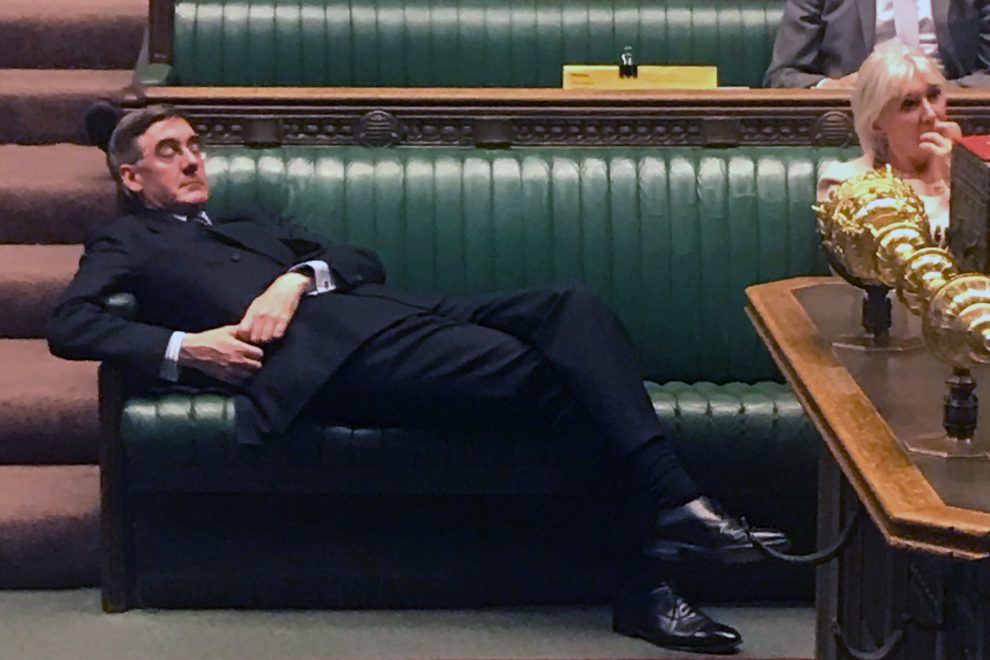Westminster unveils energy support for businesses
NON WEDNESDAY, September 21, the UK Government announced new support for households, businesses and public sector organisations facing rising energy bills in Great Britain and Northern Ireland.
Through a new government Energy Bill Relief Scheme, the government will provide a discount on wholesale gas and electricity prices for all non-domestic customers (including all UK businesses, the voluntary sector like charities and the public sector such as schools and hospitals) whose current gas and electricity prices have been significantly inflated in light of global energy prices.
The support will be equivalent to the Energy Price Guarantee put in place for households.
It will apply to fixed contracts agreed on or after April 1, 2022, and to deemed variable and flexible tariffs and contracts.
The Price Guarantee will apply to energy usage from 1 October 2022 to 31 March 2023, running for an initial six-month period for all non-domestic energy users.
The savings will be first seen in October bills, which are typically received in November.
As with the Energy Price Guarantee for households, customers do not need to take action or apply to the scheme to access the support.
Support (in the form of a p/kWh discount) will automatically be applied to bills.
RISK OF BUSINESSES MISSING OUT
The price reduction level for each business will vary depending on their contract type and circumstances.
Non-domestic customers on existing fixed-price contracts will be eligible for support as long as the contract was agreed on or after April 1, 2022.
Provided that the wholesale element of the price the customer is paying is above the Government Supported Price, per unit energy costs will automatically be reduced by the relevant p/kWh for the duration of the Scheme.
Customers entering new fixed price contracts after October 1 will receive support on the same basis
those on default, deemed, or variable tariffs will receive a per-unit discount on energy costs, up to a maximum of the difference between the Supported Price and the average expected wholesale price over the period of the Scheme.
Non-domestic customers on default or variable tariffs will therefore pay reduced bills, but these will still change over time and may still be subject to price increases.
The government is working with suppliers to ensure all their customers in England, Scotland and Wales are allowed to switch to a fixed contract/tariff for the duration of the scheme if they wish, underpinned by the government’s Energy Bill Relief Scheme support for businesses on flexible purchase contracts, typically some of the largest energy-using businesses.
The government will provide equivalent support for businesses not connected to the gas or electricity grid. Further detail on this will be announced shortly.
SUPPORT MUST AVOID
THE CLIFF EDGE
The government will publish a review of the scheme’s operation in three months to inform decisions on future support after March 2023.
The review will particularly focus on identifying the most vulnerable non-domestic customers and how the government will continue assisting them with energy costs.
Prime Minister Liz Truss said: “I understand the huge pressure businesses, charities, and public sector organisations are facing with their energy bills, which is why we are taking immediate action to support them over the winter and protect jobs and livelihoods.
“As we are doing for consumers, our new scheme will keep their energy bills down from October, providing certainty and peace of mind.
“At the same time, we are boosting Britain’s homegrown energy supply, so we fix the root cause of the issues we are facing and ensure greater energy security for us all.”
Kate Nicholls, CEO of UKHospitality said: “This intervention is unprecedented, and it is extremely welcome that the government has listened to hospitality businesses facing an uncertain winter. ef
“The government has recognised the vulnerability of hospitality as a sector, and we will continue to work with the government, to ensure that there is no cliff edge when these measures fall away.”
SOME BUSINESSES WILL FALL
BETWEEN THE CRACKS, SAYS FSB
Tina McKenzie, Policy and Advocacy Chair, Federation of Small Businesses (FSB) said: “This announcement will give certainty for the next six months, but a tough year remains ahead of many small firms.
“Many have been waiting for details on the energy bills support package to plan confidently for the winter and beyond, so it’s encouraging to have clarity from the Government on the form that its support will take.
“The next stage will be for small businesses to learn what the changes mean for their current contracts and for any offers they have been looking at.
“Subsidising the unit costs of electricity and gas for six months is welcome, but there are those who miss out from before the six-month period, and help must not result in a cliff-edge afterwards.
“We are calling for a hardship fund to be created for those who fall outside of the current support or for whom the current support will be insufficient.
“There will be hardship for some businesses which signed fixed contracts after prices rose but before April, who find themselves excluded from the scheme.
“FSB calls on energy suppliers to allow those customers to switch without charge to new fixed contracts, covered by the Energy Supported Price if that makes the difference for the small business to survive.
“Small businesses are the definition of vulnerable when it comes to these energy price hikes. Small firms do not have the ability to hedge, or negotiate energy prices, so we will be encouraging Government to continue to help small businesses across all different sectors after the six months have elapsed.”
Ms McKenzie called for common sense and understanding from the energy industry, which will continue to reap massive profits: “Energy companies must play their role to support their small business customers.
“Energy providers must pass on the benefit of the freeze in full and must immediately provide updated bills and quotes to each small business customer who will be wondering today what the changes mean for them.
“We’re concerned that there is no mention of a cap on rises to standing charges, which are the other main element of energy bills. While households’ standing charges will be capped, the same can’t be said for businesses.
“We call on energy suppliers to support their small business customers by committing to lowering standing charges as far as possible.
“We’d like to see energy companies promise not to disconnect businesses from energy supply that are currently unable to pay for their energy bills this winter and not ask for disproportionate upfront payments.
“Currently, small firms could be disconnected from energy supply if they cannot pay bills after 30 days.
“We will be writing to energy companies in this regard and encourage them to support their small business customers in this difficult period.”
SHORT-TERM FIX FOR
LONG-TERM PROBLEM
Matthew Fell, CBI Chief Policy Director, said: “We welcome the government’s quick and decisive action to provide hard-pressed businesses with a substantial short-term fix to a long-term problem.
“The package will ease worries about otherwise viable businesses shutting up shop, and smaller companies especially will benefit from the discounted rate.
“Businesses will also want to know more about the exit strategy and what happens when the six-month cap runs out. Working closely with businesses will be key to successful implementation.
“The long-run solution is to double-down on energy security and to incentivise firms to push ahead with ambitious energy efficiency programmes to lower demand.”
















